Pam
I spent twelve years of my life biking to work nearly every day. Now, the fears and stress predominate when I ride. Will the poor pavement throw me from my bike? Will someone open a car door in front of me? Will a driver simply not see me and collide? (Yes, that’s all happened, though I almost always arrive to work or home unharmed.) So I often take the bus or occasionally walk the five miles. It feels much safer. My stress level is lower.
But as Seattle’s Jourdan Imani Keith reminds me in her essay “Homophobia’s Hidden Carbon Count,” using public transit can induce the same levels of fear and stress in some people as I feel riding my bike. That real fear makes us choose different travel modes, even when we’d prefer lower polluting options. So while there’s no doubt that we need to create better physical infrastructure in our cities to give us environmentally-friendlier commute choices, we also need to create safer cities, where people aren’t harassed for who they are.
Eric
This week, I’d like to draw attention to two key pieces of environmental legislation introduced last week by Congressman Jim McDermott of Seattle. The Managed Carbon Price Act of 2014 (H.R. 4754) sets carbon reduction targets, requires polluters to purchase permits, and returns 100 percent of the revenue to consumers. (The full bill is here; Sightline has written in detail about the “managed price” approach to reducing carbon here, here, and here.) A second bill, Investing to Modernize the Production of American Clean Energy and Technology Act of 2014 (H.R. 4753), amends the federal tax code to repeal a number of subsidies for the fossil fuels industry. (The full bill is here.)
I probably don’t even need to mention that neither of these bills is likely to see the light of day in the Republican-controlled US House. In fact, it’s unlikely that even watered-down versions of these ideas would pass muster in either chamber. And without devolving into a rant, I think that sort of shoulder-shrugging hopelessness I feel about these proposals is a telling indictment of how broken our political system is.
Serena
It’s great to get to dig into an office copy of Yes! Magazine on a regular basis, but my absolute favorite piece in a while has to be the magazine’s Editor-in-Chief and co-founder Sarah van Gelder’s interview of climate activist Tim DeChristopher. Remember him? He went to prison for bidding on (and winning) parcels of Utah’s red rock country in a BLM oil and gas leasing auction in late 2008. An excerpt (but the whole—short—piece is well worth a read):
I’ve met very few baby boomer liberals who understand what it means to be a young person facing the reality of climate change…. Certainly a lot of the blame falls on fossil fuel executives and politicians, but a lot of it falls on comfortable liberals who changed their light bulbs, bought organic, and sat back and patted themselves on the back. Young people don’t have the luxury of feeling like that’s enough—like they can go to their graves content that they drove a Prius and voted Democrat, so they don’t have to feel guilty about this catastrophe.
And this great video, with a shout-out to Portland’s Powell’s Books: Stephen Colbert and Sherman Alexie discuss Amazon’s growing monopoly on the publishing industry, and encourage you to buy elsewhere.
http://www.hulu.com/watch/644978

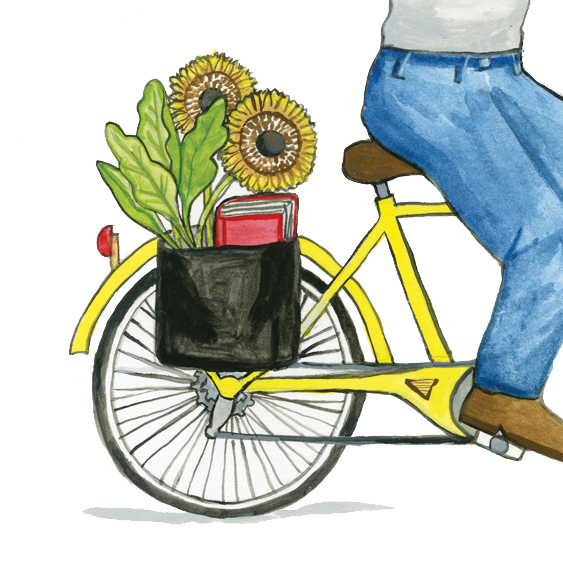
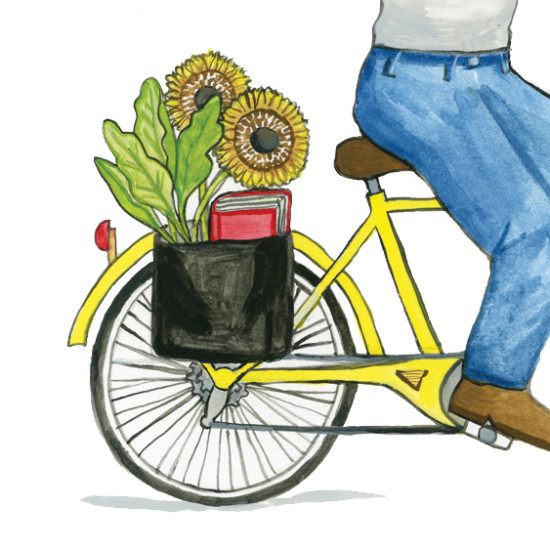

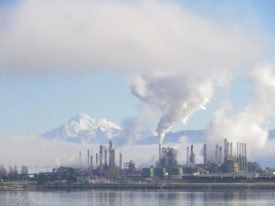
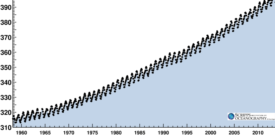
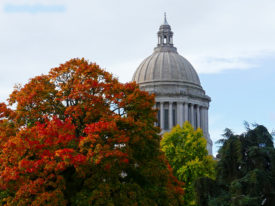

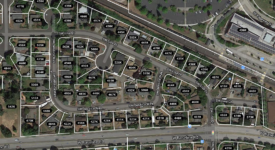

bill bradburd
Well some of us “boomers” do like to scoff at the efforts made to date by our leaders in efforts environmental as being showpieces more than substantive, and argue that far more needs to be done.
Seattle’s “bold” ‘Carbon Neutral by 2050’ plan does not measure everything and even takes us buying offsets to achieve that. Given the head start we have with hydro – something not available to most of the US or the world – does nothing to demonstrate the critical efforts necessary nor the timescale required to have real effect. Why not by 2025 to demonstrate to other cities what can be accomplished? I’ll wager by 2025 we’ll realize how far off our goals we really are (as well as be at CO2 PPMs well above 500).
Our former “Sierra Club” mayor proposes a tax on sugar. Why not on beef – which contributes significantly to net global greenhouse gases. And why not use the city’s bonding capacity to further local solar power generation and energy conservation rather than building a basketball arena?
Rather than promoting low impact infill development we send embedded carbon housing stock to the landfill and cry for glass, steel and concrete towers. Our transit solutions are obscenely high impact – just what is the carbon footprint of freeway and light rail tunneling? Electric trolley buses are just not hip enough for millennials it seems.
Rather than pressing for higher energy standards in our land use and building codes we water them down down (e.g. Living Building) and concede to the low-bar wishes of the Master Builders.
Banning plastic bags has become the end point when we should be looking at banning a lot of what was IN those bags. Our addiction to rapidly evolving technology and the internet and cloud – equipment de rigueur for millennials – have an externalized environmental footprint often disregarded.
Unfortunately we are addicted to growth and consumption (through our city funding needs), arguably far worse for the environment than trying to establish resilient and sustainable communities capable of producing some of its own food and energy, and looking for local solutions to commerce and transit.
Yes, our boomer, post-boomer and genX leaders have failed us — and continue to do so.
And here in “progressive and green” Seattle we trumpet the notion that a millennial in a micro-unit with an iPod and a microwave burrito is a sustainable future. Personally, I think not.
If millenials truly want a better future, the myth of hip urban living should be regarded closely – despite the allure of ‘Sex in the City’ or “How I Met Your Mother’. I suggest that learning permaculture concepts and techniques, making your own music and entertainment, and not getting caught up in the corporate and technology web or otherwise helping produce consumption and GHGs elsewhere is a far better path to follow.
Student
Evidence is good. What are the relative balance-of-carbon footprints of these varied activities and construction projects, and which of them have the least, or better yet a positive, impact on one’s sense of personal freedom? Which ones are politically palatable?
(and why do I feel like I’m rising to bait?)
Phillip Johnson
Let me get this straight: A 68-year-old who changes lightbulbs, buys organic and pats himself on the back for doing enough about climate change deserves scorn–but it’s okay if you are 69? Likewise, if you are 50 and aren’t doing enough you are part of a generational “fail,” but if you are 49 you get a pass?
What does this fundamental cultural and social problem, the product of America’s history and the history of the industrial age, have peculiarly to do with baby boomers?
I’m a baby boomer dedicated to working on climate change issues. Tim DeChristopher is a nasty, bigoted little twit. And nuts to Serena Larkin for endorsing his bigotry.
Barry Saxifrage
Great quote Serena. Thanks for that.
To me, the most fascinating example of boomer-blindness that I’ve run across over the years is jet setting.
A single vacation flight to a place like Australia, India or Africa produces around 9 – 10 tCO2e (flight calc here). And a recent World Bank study shows that if you sit in biz class your impact doubles, while riding in first class increases your climate damage 4 to 9 times.
Oh, and half the World Bank’s climate footprint comes from flying. In the UK it is somewhere around 10% and on track to exceed the entire nations 2050 climate target.
You just can’t have a climate sustainable life and fly regularly or far.
So if you want to talk about denial, consider that about the only thing the US Congress agreed upon in the last few years is when they voted unanimously to prevent the EU from adding a few dollars in climate pollution fees to international flights.
Jet setting regularly to far flung places for personal experiences is celebrated in boomer culture.
Discussions of how such a high-climate-damage entitlement can co-exist with a livable climate system … ha ha.
Student
PJ, how do the engaged hearts minds&souls of a younger generation get across, to elders who don’t want to hear it, that the actions which the mass of liberal elders have taken to date have not added up to wise stewardship? If you don’t like what the messenger says, rather than calling him names, how about helping, and suggesting how you think the message could be better conveyed? As long as the elders are voting and have power, it’s important to show them what the right track is and to point out the moral obligation to take it, no?
Please help in figuring this out, if there’s a better way.